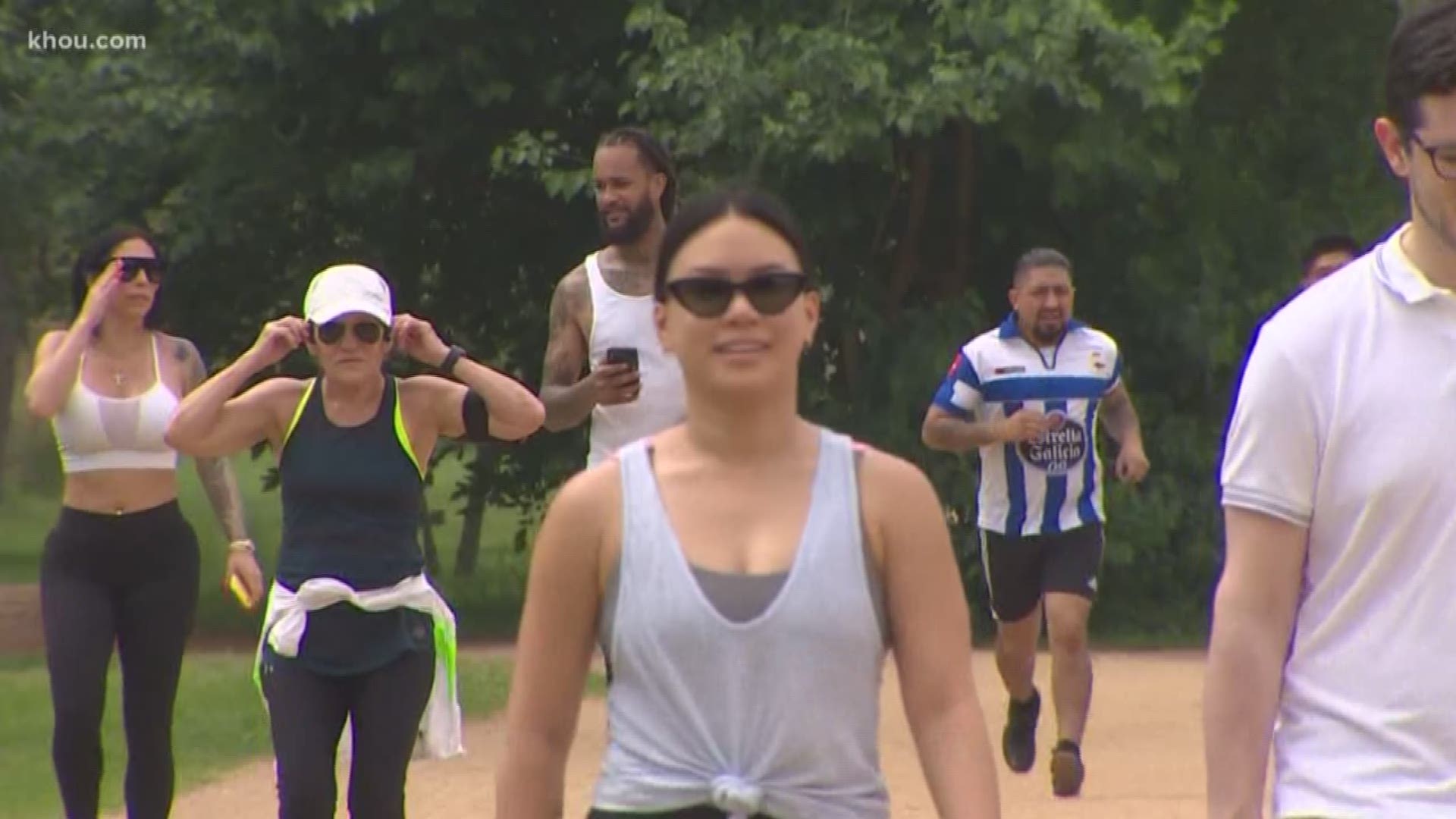HOUSTON — It could be figuring out how you’re going to pay your bills or anxiety from feeling isolated.
Whatever the case, many of us are trying to cope with the dramatic changes happening in our life right now because of the coronavirus pandemic.
“People who have been through a traumatic event can experience anxiety, worry or insomnia,” Dr. Elinore F. McCance-Katz, MD, PhD said.
We've complied a list of hotlines available for free to U.S. residents. More resources will be added as they're announced.
Disaster Stress Helpline
The U.S. Department of Health and Human Services announced Friday its Disaster Stress Helpline is available for those experiencing mental or emotional distress at this time.
You can reach the hotline at 1-800-985-5990 or text ‘TalkWithUs’ to 66746.
The helpline is sponsored by the Substance Abuse and Mental Health Services Administration.
It’s a free 24-hour service that connects people to trained counselors and other specialists from crisis counseling centers within a nationwide network. The helpline staff can provide confidential counseling, referrals and other needed support services. They’re also trained to assist with a range of symptoms.
Salvation Army emotional, spiritual support hotline
The Salvation Army has launched, what it's calling, the first nationwide hotline to provide emotional and spiritual support to anyone impacted by the crisis. The service is open to anyone looking for spiritual guidance, local services, or just someone to talk to.
The Salvation Army says they have pastors and emotional-care personnel ready to listen.
The number to call is 1-844-458-HOPE (4673). Staff are available from 9 a.m. to 9 p.m. EST, and counselors speak English and Spanish.
What happens if someone calls after hours? The Salvation Army says callers are encouraged to leave a message.
MORE GOOD NEWS ON KHOU.COM
- Houston pop-up kitchen serving free meals to seniors, unemployed and others in need during coronavirus crisis
- Girl Scout collects 1,400 boxes of cookies for busy nurses, doctors at children’s hospital
- Woman who lived through 1918 flu pandemic will turn 103 during COVID-19 pandemic
- Volunteers and their dogs surprise healthcare workers at Clear Lake hospital
Coronavirus symptoms
The symptoms of coronavirus can be similar to the flu or a bad cold. Symptoms include a fever, cough and shortness of breath, according to the Centers for Disease Control. Some patients also have nausea, body aches, headaches and stomach issues. Losing your sense of taste and/or smell can also be an early warning sign.
Most healthy people will have mild symptoms. A study of more than 72,000 patients by the Centers for Disease Control in China showed 80 percent of the cases there were mild.
But infections can cause pneumonia, severe acute respiratory syndrome, kidney failure and even death, according to the World Health Organization. Older people with underlying health conditions are most at risk for becoming seriously ill. However, U.S. experts are seeing a significant number of younger people being hospitalized, including some in ICU.
The CDC believes symptoms may appear anywhere from two to 14 days after being exposed.
Human coronaviruses are usually spread through...
- The air by coughing or sneezing
- Close personal contact, such as touching or shaking hands
- Touching an object or surface with the virus on it, then touching your mouth, nose or eyes before washing your hands.
Help stop the spread of coronavirus
- Stay home when you are sick.
- Eat and sleep separately from your family members
- Use different utensils and dishes
- Cover your cough or sneeze with your arm, not your hand.
- If you use a tissue, throw it in the trash.
- Follow social distancing
Lower your risk
- Wash your hands often with soap and water for at least 20 seconds. If soap and water are not available, use an alcohol-based hand sanitizer.
- Avoid touching your eyes, nose, and mouth with unwashed hands.
- Avoid close contact with people who are sick.
- Clean and disinfect frequently touched objects and surfaces.
- If you are 60 or over and have an underlying health condition such as cardiovascular disease, diabetes or respiratory illnesses like asthma or COPD, the World Health Organization advises you to try to avoid crowds or places where you might interact with people who are sick.
Get complete coverage of the coronavirus by texting 'FACTS' to 713-526-1111.

